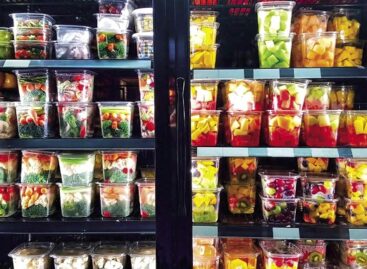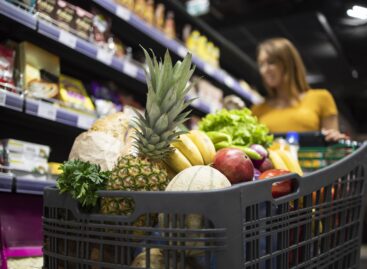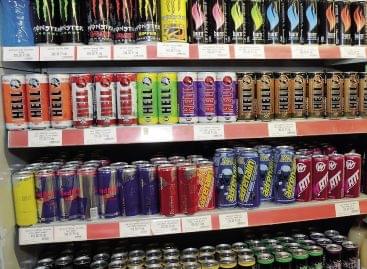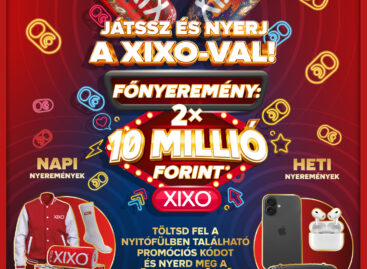Magazine: Let’s have something healthy that is ready in no time!
The first half of 2020 was a difficult period for frozen fruit and vegetable companies.

Dr. Adrienn Losó
managing director
MIRELITE MIRSA
Dr Adrienn Losó, managing director of MIRELITE MIRSA Zrt. explained that several fruit varieties were damaged by the weather and the yields was below the average. This entailed a surge in apricot, peach and plum prices, but other fruits got more expensive too. Large-sized product sales suffered as many restaurants and mass catering kitchens had closes due to the COVID-19 pandemic. At the same time new instant delivery and payment opportunities have emerged in export markets. For manufacturers it was very difficult to plan prices and the quantities retail outlets would need in advance. Despite the difficulties the company didn’t stop innovating, for instance MIRELITE’s pasta products got a new packaging.
Tailored to consumer taste

Csilla Fülöp
marketing manager
Agrosprint
Canned food profited more from the coronavirus-induced buying frenzy than frozen products, as most people don’t have large deep freezers in their homes. Csilla Fülöp, marketing manager of Agrosprint Zrt. told our magazine that a GfK survey has found: 7 from 10 Hungarian households buy frozen vegetables, on average 2 times a month they purchase a bit less than 1kg per occasion. So-called mono products are still the most popular, but demand is on the rise for various vegetable mixes.
In its innovation work Agrosprint Zrt. takes several factors into consideration, such as convenience, health-consciousness, new production technologies and tailoring products to consumer taste. New innovations from the recent past include Sprint Smoothie Mixes: they rolled out the Antioxidant, Low Sugar and KIDS Smoothie Mix products. Smoothie Mixes can be prepared in just a few minutes, the way consumers like it – and they are healthy too.
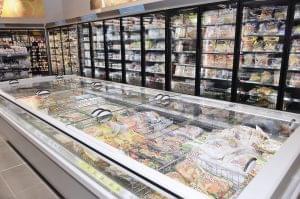
Vegetable mixes and green beans follow green peas on the sales top list
Ready for everything

Gergely Rimár
sales and marketing director
BA-HA-MAS
Gergely Rimár, sales and marketing director of BA-H-MA’S Kft. spoke to our magazine about how the dynamic price changes in the fresh meat category affect the sales performance of frozen meat. The company’s HoReCa partners are ordering the same products as before the pandemic, but in smaller quantities. Small-sized Bahamas frozen vegetables and Passner products can also be found in more and more grocery stores. There is growing consumer demand for convenience products, and the pandemic only strengthened this trend. Passner semi-prepared meals perfectly satisfy this need. It was one year ago that the company rolled out the Kentucky and Crunchy chicken breast fillets. Cordon Blue has been available since this November. BA-H-MA’S Kft. is planning to develop products for the HoReCa sector too.
Home flavours in large quantities

János Volosinovszki
managing director
Nádudvari Élelmiszer
Nádudvari Élelmiszer Kft. is present in the frozen food market with a large product selection, e.g. breaded cutlets and cheese, vegetables, soup mixes, hamburgers, desserts, etc. Managing director János Volosinovszki informed us that Nádudvari’s frozen food sales keep growing. The typical product size is 350-450g, which is ideal for 2-3 people. For the HoReCas sector they are making 2.5kg product variants. In line with the current health trend, the company has launched a fish product line. This includes various fish dishes from breaded catfish through African catfish steak to carp crisps. All of them can be prepared in the oven without having to add oil. It must be emphasised that these fish products are made using methods that leave their taste just like the home flavours consumers love so much.
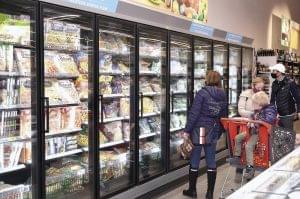
Recently, convenience products are highly sought-after and this trend has been further amplified by the COVID-19 situation
Fish with smaller footprint

Attila Sárközi
commercial director
FRoSTA
Attila Sárközi, commercial director of FRoSTA Hungary Kft. said: the pandemic generated increased sales primarily in the breaded fish category, but rather surprisingly there was no boom in ready meal sales. The company drew the conclusion that the latter category requires renewal and took a step in the direction of single-serve products. Consumer demand is increasing for FRoSTA Hungary’s frozen foods. Mr Sárközi sees a polarised market in terms of both product category and sales channels: his view is that a couple of strong brands and private labels have a future, and sales are increasing in convenience-type supermarkets, while hypermarkets suffer.
For FRoSTA the main innovation direction is sustainability, seeking to reduce the company’s environmental impact and ecological footprint. In accordance with this, their product ingredients are MSC-certified and they make additive-free products – as it is indicated by the CLEAN label. One of the new innovations in the Fast Good range – these are single-serve ready meals: Chili con carne, Moussaka and Curry.
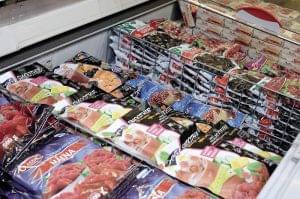
Manufacturers do their best to make use of the possibilities provided by new production technologies to support customers’ health consciousness
//
A jump in private label frozen vegetable sales


Zsófia Vörösmarty-Horváth
client consultant
Nielsen Piackutató
Hungarians bought HUF 22 billion worth of frozen vegetables between September 2019 and August 2020. Sales soared by 23 percent if compared with the base period. Volume sales were up 11 percent and reached 33,000 tons. 401-2,500m² stores were responsible for 56 percent of value sales. Private label frozen vegetable sales skyrocketed at 150 percent and they now realise 60 percent of value sales; in volume they have a 70-percent market share. Frozen peas are the most popular with a 27-percent market share. //
Related news
Convenience boom
There is no standard definition for convenience foods. Foodnavigator.com examined…
Read more >GfK’s German consumer sentiment index for May improved
Instead of the deterioration expected by analysts, the German consumer…
Read more >European Purchasing Power 2024: Hungary in 30th place
According to the latest analysis by GfK, the average purchasing…
Read more >Related news
What makes us add the product to the cart – research
The latest joint research by PwC and Publicis Groupe Hungary…
Read more >Energy drinks are now legal: what every shopkeeper should know
New regulations on the sale of energy drinks came into…
Read more >Tens of millions with one opening tab – the biggest prize draw in XIXO history has started
This summer, XIXO is preparing for a bigger launch than…
Read more >
